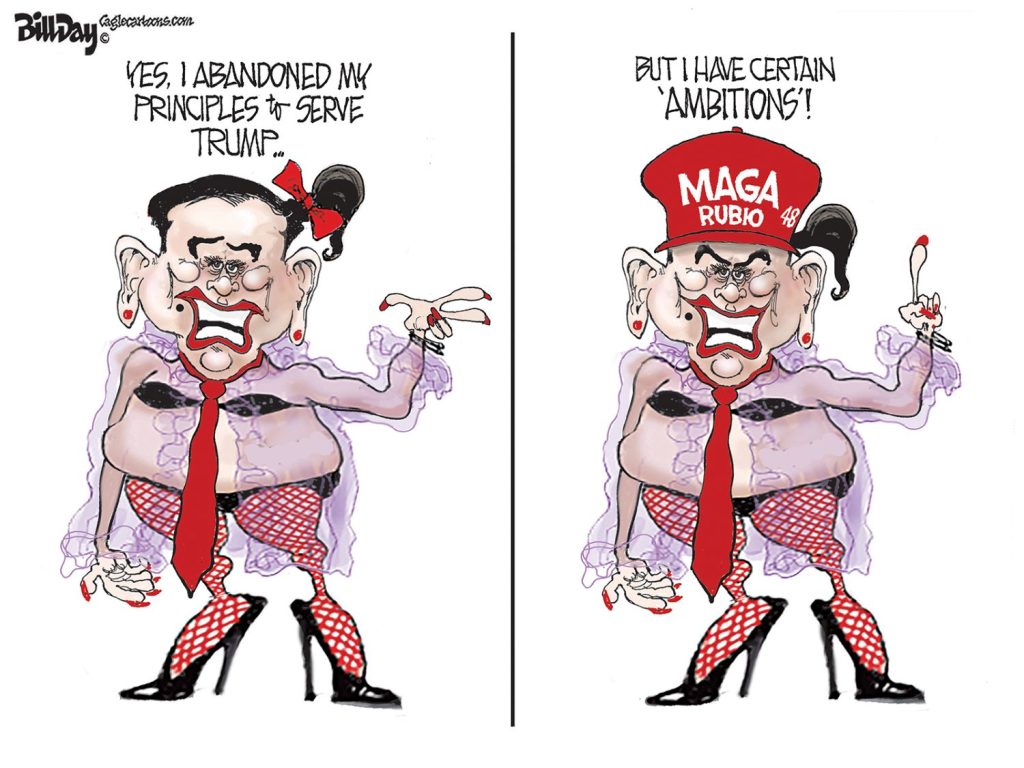It’s Memphis and Shelby County’s $600 million opportunity.
That’s the estimate of additional earnings if we can bring the number of African-American young professionals to the same level as Caucasian young professionals.
The recent poll by Yacoubian Research for PeopleFirst Partnership is full of interesting insights into Memphis and Shelby County’s 38,299 people who fall into this coveted demographic heading – 25-34 year-old college-educated.
But what caught our eyes was a percentage on the last page of the polling report. It showed that, according to the polling, 63% of young professionals in Memphis and Shelby County are white and 31% are African-American.
More than anything else in the poll, it was the ultimate wake-up call for our community.
Being Intentional
After all, in a county that is 53% African-American and in which 52% of 25-34 year-olds are African-American, it only makes sense that a key competitive advantage for our community would be to be a hub of African-American talent.
The fact that we have failed at this is a serious drag on our economy and on our future. The fact that we appear hesitant to talk about it is the greatest failure of all.
We have written often about our community’s troubling economic trend lines, and it seems to us that if Memphis is to change its trajectory, we should set the goal to be nationally known for our concentration of African-American talent.
Atlanta built its economic juggernaut while sucking up most of the African-American talent in the Southeast. There was an intentionality to it, there were bragging rights built around it, and there was a pride in accomplishing it. As much as anything, Atlanta sent the message that African-American talent was valued there and the welcome mat was out.
The Black Austin
Meanwhile, we remain bashful about saying that we have the priority, or that we could becom “the black Austin,” as one of our favorite Memphis urbanists has said, because of an authenticity built directly on a rich foundation of African-American culture, creativity, and cuisine – not to mention that we are the first and only MSA with more than one million people that is majority African-American.
Competitive advantage is found in differentiation, and this majority minority sets us apart and has to be leveraged for economic growth. That’s why our talent strategies have to specifically call for an African-American talent initiative that increases the percentage of 25-34 year-old college-educated people who are African-Americans.
The gap between 31% of young professionals who are African-American and the 52% of all 25-34 year-olds in Shelby County who are African-American creates a chasm in which our economic future can easily plunge. It is in the closing of that gap that Memphis and Shelby County have more wealth, more entrepreneurs, more disposable income, and more overall success.
The absence of a rallying cry to accomplish this sends the message to young African-American talent evaluating Memphis that we are in institutional deep denial and our behavior suggests that we see our minority majority MSA population as a weakness or a competitive disadvantage.
In doing this, we play into the hands of those who assume that a majority African-American region cannot succeed, and make no mistake about it, too much of the commentary about Memphis often has this bias at its heart.
Playing to Our Strength
It’s our conviction that cities are like politicians: the smartest thing to do is to walk toward things perceived as problems by others. Pretending that the facts are not the facts only make us look foolish, or worse, that we believe success comes if we can develop, retain, and attract white young professionals.
We’re not saying that we shouldn’t be scratching and clawing for any talent that we can get, whatever color, but the fact remains: we have a significant bulge in children when compared to the average of the top 51 MSAs – and the majority of these kids are black – and this bulge can be an economic plus for us in the continuing fight between cities for talent, but first, we have to begin to treat them as economic assets.
In other words, we need to spotlight our wealth of African-American talent, we need to celebrate a culture and identity that was shaped by our African-American history, and we need to state clearly that the development, retention, and attraction of African-American talent are top priorities for every one of us in this city.
To do less is to pursue economic success with one hand tied behind our backs.
Finding Meaning in Memphis
Here’s the thing: our region has been bleeding talent for more than 15 years, and we are only deluding ourselves if we think young, college-educated African-Americans are going to stay in Memphis out of sheer loyalty and without weighing the benefits of a move to another city. There is no African-American young professional in Memphis who can’t name at least a half dozen friends who have already abandoned Memphis for Atlanta, Nashville, Charlotte, and beyond.
Our competitors are aggressively recruiting our best and brightest and nothing makes for better billboard material than our community’s apparent lack of commitment to being a center of African-American success.
To succeed, first and foremost, it requires us to amplify and celebrate the contributions being made by African-American young professionals every day and to state forthrightly that we want others to join them here. After all, they can move to Atlanta and work hard for 35 years, get involved in civic activities, and they can move the needle from 9.6 to 9.61. Here, they can make a profound difference, and for a generation looking to find meaning, no city has more to offer.
It’s particularly concerning that our community has a negative image among African-Americans young professionals living outside Memphis. They say we are stuck in time, they comment about riverboats on our brochures and websites, and they recognize that too many well-publicized projects still lack adequate diversity.
As one young woman from another part of South said, Memphis was never on her list as a potential place to work because she wanted to associate her career with a city that would propel it ahead. She chose Atlanta.
Sound Economic Policy
To this point, we should trumpet all the good things happening in Memphis now, but we should also invite young professionals to join us in disproving the racist notion that a majority African-American region cannot succeed.
To begin recruiting African-American talent, we’d put Ekundayo Bandele and Hattiloo Theatre on the road, visiting historically black colleges and universities to demonstrate clearly that we’re not our grandfather’s city. We can think of no one better at delivering a new Memphis, its energy and its creative culture. After all, Mr. Bandele is the literal and symbolic model of it and almost all of the cities that are successful in attracting African-American young professionals don’t even have a black repertory theater.
Meanwhile, every economic development program in Memphis and Shelby County should adopt a shared priority of making our community a national hub for young African-American talent and African-American entrepreneurs. In the first majority African-American region with more than one million people, it’s not just a matter of sound morals. It’s the heart of a sound economic policy.
To this end, minority businesses have to be treated as partners rather than as social work. Too often, companies and corporations act as if helping minority entrepreneurs is just a good deed rather than a critical investment in regional economic success. Despite decades of talk about the importance of minority businesses, these businesses remain largely in low-growth and no-growth sectors and rely on personal debt and family financing rather than loans, equity, and other tools. Because of it, the businesses lack the number, size, and capabilities of their white-owned counterparts.
More African-American businesses and entrepreneurs would accomplish so many of our economic objectives for Memphis, including accelerated jobs growth, rebuilding urban neighborhoods, expanding local tax bases, creating more customers, and putting more money in cash registers and creating a model for young people in neighborhoods.




“But what caught our eyes was a statistic on the last page of the polling report. It showed that 63% of young professionals in Memphis and Shelby County are white and 31% are African-American.”
That’s inaccurate. This represents the racial breakdown of the 200 or so respondents who participated in the survey.
We were told that it also reflects the breakdown of African-American to Caucasian YPs countywide.
To be a scientific poll as it purports, it has to start with the statistical framework (w/b, m/f/, etc.) and then the poll has to hit those benchmarks in its final results. Otherwise, it’s not a scientific poll.
Weighting is also a recognized way for a poll to account for the need to reflect the polling targets’ profiles. It’s how my organization has done it when necessary:
After the pollster collects and processes survey data, each respondent is assigned a weight so that the demographic characteristics of the total weighted sample of respondents match the latest estimates of the demographic characteristics of the adult population available from the U.S. Census Bureau. The pollster weights data to census estimates for gender, race, age, educational attainment, and region.
While I do not fall into the 25-34 college-educated Black professionals category anymore (I’m 40 & educated), I’ve been having this exact conversation for the past ten years when I was apart of that demographic. I do believe that moreso, within the past few years, it’s been accepted more that African-American talent should be cultivated and retained in Memphis. The University of Memphis educates thousands of African American individuals each academic year, however for those that matriculate, they leave the city because of the lack of opportunities due to the good old boy network and/or the poor quality of living for them.
I chose to remain in Memphis however I’m highly aware of the fact that I would be much more ahead in my professional career and entrepreneurial endeavors if I did not live in Memphis but in a city such as Atlanta, Houston, Dallas or Chicago. The potential of this city is what continues to motivate me however we have to work at getting the powers that be to see what we see. Kudos for shouting out one of my theatre mentors, Ekundayo!
Thanks, Chandra, for sharing your views about the progress being made in putting this on the agenda.